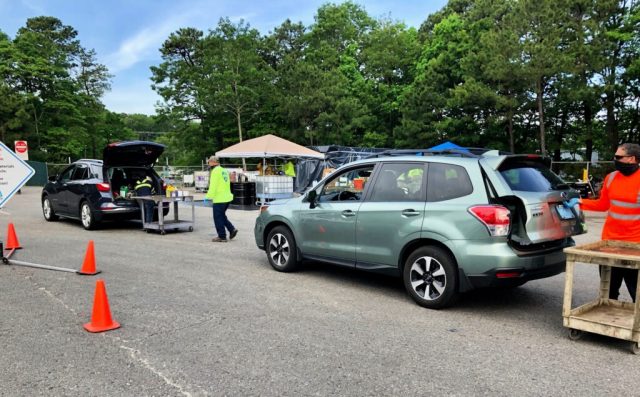While we may not always think of them as dangerous, many products that residents regularly use around the house, such as insecticides, cleaning products or rechargeable batteries, are considered hazardous and should never be placed in the trash or emptied down the drain.
These items can cause fires and endanger sanitation workers, waterways and the environment when disposed of incorrectly. The Atlantic County Utilities Authority has experienced three fires in the past two years on its collection vehicles from rechargeable lithium-ion and nickel-cadmium batteries incorrectly placed in residential trash.
Hoping to reduce the dangers, Atlantic County will hold a hazardous household waste drop-off 8 a.m. to 1 p.m. Saturday, Sept. 12, at the ACUA Environmental Park, 6700 Delilah Road in Egg Harbor Township.
Because of its flammable properties, unused household hand sanitizer has been added to the list of accepted items. Other accepted items include insecticides, fertilizer, paint thinners, furniture polish, weed killers, pool chemicals, rat poison, rechargeable batteries, car and boat batteries, auto care products, gasoline, rust remover and oven cleaners.
The drop-off is open to Atlantic County residents. Proof of residency is required. The maximum amount of household hazardous material allowed for disposal is 20 gallons and/or 200 pounds (dry weight) per household. Participants may bring materials from more than one Atlantic County household, which can save time and gas money.
Due to the coronavirus, all residents should wear masks and must remain in their vehicle. Items should be placed in a recyclable or throwaway container, such as a cardboard box, that can be safely removed from the vehicle and discarded.
To safely package and transport household hazardous waste, the following guidelines should be followed:
- Keep all products in original containers.
- Wrap leaking containers in newspaper and place in a plastic bag or garbage container.
- Place items securely in a box for transport.
- Keep chemicals that could react with one another separated.
- And do not leave materials in hot, unventilated areas for long periods of time.
Before bringing a material, please be sure that it is an accepted product by calling 609-272-6950 or visiting the ACUA’s website at www.acua.com/hhw. After Sept. 12, the next drop-off is Saturday, Nov. 7.








